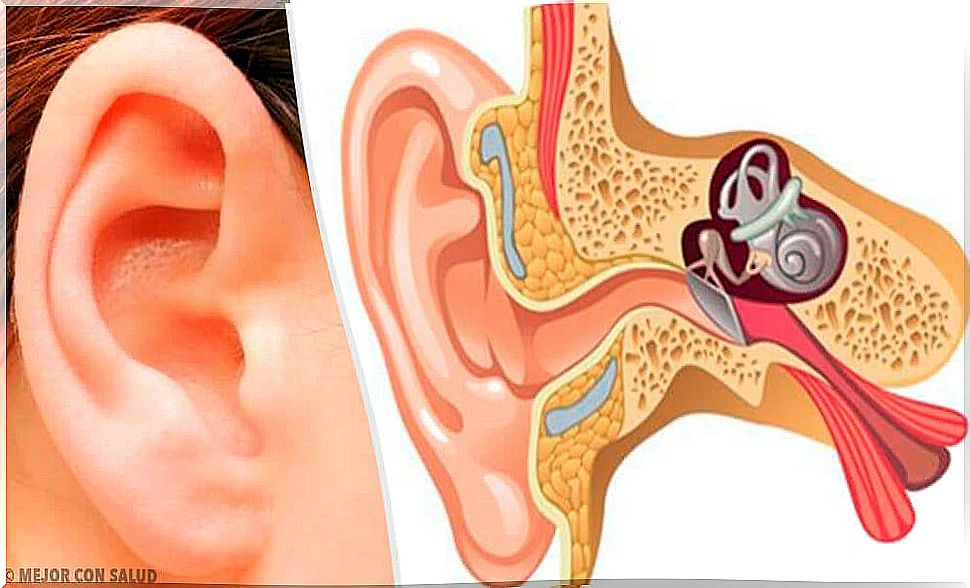What Are The Causes Of Tinnitus?
To talk about the causes of tinnitus, it must be understood that it is a symptom and not a disease in itself. It is a sign that refers to some underlying disorder that produces it.
In medical terms, tinnitus is a noise that is felt in the ear as a persistent ringing or purr. It does not come from an external source that originates it, so its existence causes stinging in the person who suffers it, who cannot give an accurate explanation.
Causes of tinnitus
As we anticipated, the causes of tinnitus are varied because we are dealing with a symptom, not a disease itself. Both damage to the ear and the use of certain medications are associated with the appearance of persistent sound.
Ear damage
The ear has three main parts: outer, middle, and inner. The outer area is the ear, basically, and the auditory canal that leads to the eardrum. Inside it there is a box-shaped anatomical space that constitutes the middle ear. Then, further inside, there are the connections with the nervous system that will carry the information to the brain.

If the middle or inner ear is injured, for whatever reason, it can lead to tinnitus. These conditions are divided into those that affect the conduction of sound waves, such as a disorder of the ossicles, or neuronal interpretation, in the brain.
Tumors are a serious oncological reason that must be detected early. Many of them grow slowly, but continuously. Sometimes the perceived hiss is caused by the pressure of tumor cells against the acoustic nerve.
More internal and more difficult to detect is the death of neuronal cells from a stroke. The sequelae of stroke include hearing loss and tinnitus. This will depend, to a large extent, on the location of the bleeding or arterial blockage, initially.
Long exposures to loud noise
People who work with noisy machinery or in environments with high decibels for much of the day, are exposed to this hiss outside of their working hours. This is the case of hydraulic hammer operators, for example.
Damage has also been reported when listening to music at high volumes with headphones. In a sense, for disk jockeys an occupational disease is conformed.
These causes of tinnitus can lead to temporary or persistent and chronic disorders. Always, the treatment consists of reducing the exposure to noise or removing the individual from the harmful environment for a long time.
Medicines

Drugs that cause tinnitus do so because they have ototoxicity as an adverse effect. This is the ability to damage hearing at different levels after consumption. It is not always a question of dosage, although risk increases when recommended treatment values are exceeded.
Among the most used ototoxic drugs we can mention the following:
- Loop diuretics: these are drugs for high blood pressure that can be taken alone or in combination with other antihypertensives.
- Chloroquine: as a medicine for malaria, its use is widespread in the world.
- Gentamicin: is, perhaps, the antibiotic most linked to ototoxicity. It can be used respecting the protocols of use, but when it is prescribed beyond the safety margin, the ears suffer.
- Aspirin: acetylsalicylic acid can cause tinnitus if it is consumed inappropriately for long months, exceeding 10 doses each day.
Temporo-mandibular joint disorders
The joint between the lower jaw and the temporal bone of the skull is what allows chewing. Together with this mechanism, the masseter muscle ensures that the mouth opens and closes with the mobilization of the jaw.
In people with bruxism, which is the pathological nocturnal squeezing of the teeth, the joint enters a state of dysfunction. It does not close as it should, the surrounding soft tissues become inflamed, and the central axis on which it sits is lost.
As the area near the ear becomes inflamed, out of solidarity structures related to the outer and middle ear are also inflamed. This can lead to tinnitus in some patients.
The same applies to intense cervical contractures that transfer their contraction towards the frontal area, affecting the lower jaw. Also due to proximity, the ear becomes inflamed and internal noises are generated that do not refer to any external source of sound.
How to avoid the causes of tinnitus?

Avoiding the causes of tinnitus is not easy because the forms of presentation and origins are varied. However, general measures can be taken to reduce possible damage and protect hearing.
Among these measures is the control of exposure to loud noise. Certain jobs require specialized hearing protection that reduces the decibels that enter the tympanic membrane, through protectors.
On the other hand, given the appearance of symptoms and their persistence, it is essential to speed up the medical consultation. Serious issues such as an auditory nerve tumor can be detected with complementary imaging methods that account for the disorder.
If you are a person with bruxism, you will surely have auditory symptoms by not applying a dental approach. Don’t let it evolve. Consult your dentist, who can order a nighttime relaxation plate, for example, to reduce friction.
The annoyance of tinnitus alters the quality of life and, in some people, leads to moods or depression. It is better to go quickly to the diagnosis to find a solution.









